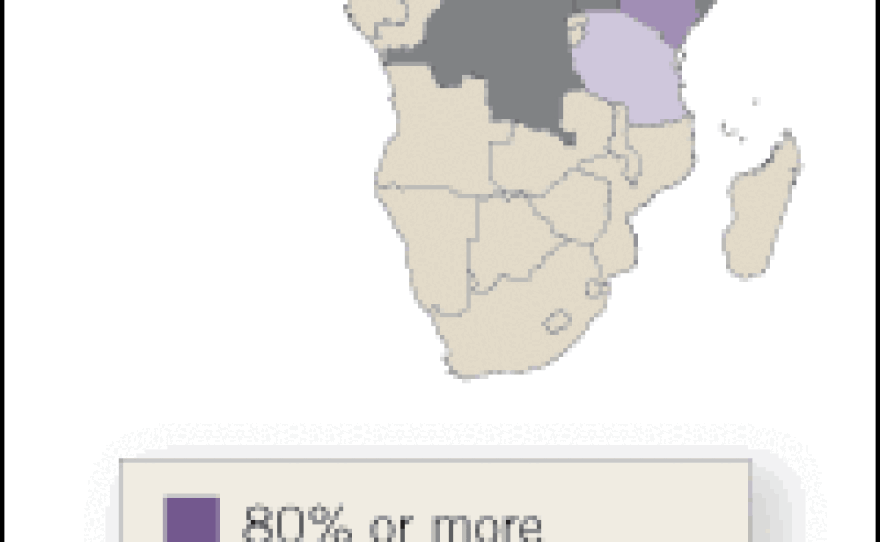
Egypt is strengthening its ban on female circumcision in the wake of the death last month of a 12-year-old girl undergoing the procedure.
Female circumcision has been illegal in Egypt for years, but the death of Bedour Shaker in the Minya district of Upper Egypt has brought to light how widespread the practice remains.
Many say it will take years to reverse local customs that support the practice, also common in other parts of Africa, Asia and the Middle East.
'An Evil, Vicious Practice'
Bedour died, reportedly of an overdose of anesthesia, in a clinic where a doctor was performing what for many Egyptian women is still a rite of passage in the 21st century — the removal of parts of the genitalia, usually including the clitoris.
Her death and the unusually heavy publicity it generated have re-energized opponents of the practice.
"I hate to say that, but it helped us immensely. It's an awful custom. It's an evil, vicious practice, really," says Moushira Khattab, Secretary-General of Egypt's National Council for Childhood and Motherhood.
Khattab says that as depressing as they might seem, the latest figures on female circumcision in Egypt actually represent a noticeable improvement.
"Seventy percent are victims of this practice," Khattab says. "But the good thing is that this percentage reflects a decline in the prevalence. [The percentage] used to be in the 90s."
As recently as 2003, a UNICEF survey found that well over 90 percent of Egyptian women who were or had been married had undergone circumcision.
The reason for some optimism, advocates of eradicating the practice say, lies in changing attitudes among young girls. The latest figures for girls ages 10 to 18 show circumcision rates down to 63 percent in rural areas, and down to 43 percent among urban girls. Among girls who attend urban private schools, the figure drops to 9 percent.
Eradicating the Practice
The battle against female circumcision is more complex than it may seem at first glance. It's not, as many assume, necessarily linked to conservative Islam. In Saudi Arabia, for instance, the practice is virtually unheard of. Egyptian scholars say female mummies showing evidence of clitoral excision date back to the 16th century B.C., long before either Christianity or Islam arrived on the scene.
Even so, Muslim clerics in Egypt have joined the effort to end the practice, declaring that female circumcision has nothing to do with religion.
Jody Joseph, of the Better Life Association, works with villagers in Upper Egypt to eradicate female circumcision. She says the practice thrives in small, insular societies where everyone knows everyone, and an uncircumcised girl brings shame on the family.
"And the family will try to encourage the girl to have this operation because they tell her, 'We'll give you good food. We'll give you a chicken. We'll buy you new clothes.' It's like the girl is a bride. They sort of prepare her psychologically that she's going to be purified," Joseph says.
Joseph's group has conducted seminars, marches, even puppet shows for young girls, to promote the notion that they could have a say in what was done to their bodies. They have also reached out to the mothers and grandmothers — often the ones who keep the practice alive. She says that if there's any backlash, it generally comes not from the male villagers, but from the midwives who earn nearly $10 for performing the dangerous operation.
"The midwives, they started to be against us because we were stopping them from making a living. So we started also working with them, to redirect them to other ways of making a living. Some of them sell vegetables and fruits, and also this incident with Bedour made people very afraid," Joseph says.
Those against the practice say there's still a long way to go, but they hope the tragic death of Bedour Shaker will mean less suffering for young Egyptian girls now approaching puberty.
Copyright 2022 NPR. To see more, visit https://www.npr.org. 9(MDAzMjM2NDYzMDEyMzc1Njk5NjAxNzY3OQ001))






